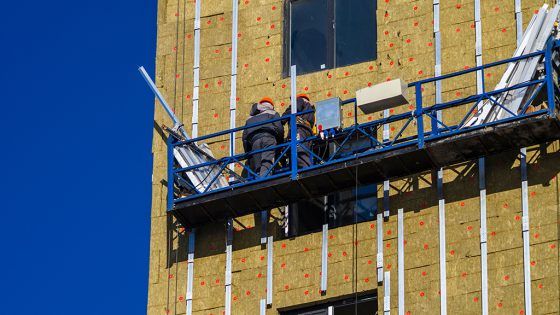A high-profile Parliamentary committee has announced a probe into the government’s progress in remediating high-rise buildings with dangerous cladding.
The Public Accounts Committee (PAC) said it would summon senior officials from the Ministry of Housing, Communities and Local Government (MHCLG) and Homes England to give evidence.
Its inquiry will delve into how effectively government schemes have been identifying and remediating unsafe cladding and managing the associated costs.
A statement from the committee said: “In its 2020 report on remediating dangerous cladding, the committee expressed its condemnation at the badly missed target of June 2020 for all high-rise blocks to have Grenfell-style cladding removed.
“The MHCLG accepted at the time that progress had been unacceptably slow.”
The PAC’s new inquiry will assess whether recent government initiatives have successfully remedied system-wide issues and made meaningful progress in the past four years.
Hearings will focus on four key areas:
- Progress and timelines: Scrutiny of current timelines and the identification process to understand the realistic expectations for completion.
- Protection of public funds: An evaluation of the steps taken to safeguard taxpayer investments in the £5.1bn cladding fund.
- Government’s approach to building safety risks: Analysis of how government has incorporated safety protocols to prevent similar issues in future construction.
- Efficient deployment of the £1bn announced for cladding remediation in this week’s Budget: The inquiry will examine plans to ensure that this funding is deployed strategically and with accountability.
In response to the 2017 Grenfell Tower tragedy and its aftermath, the government has committed £5.1bn for cladding removal and replacement, vowing this would be the limit of taxpayer funding for remediation.
Building owners and developers are expected to shoulder costs to ensure that leaseholders, who played no role in creating these risks, are not financially liable.
Despite this commitment, MHCLG’s figures from January indicate that only 8,000 out of nearly 4,000 affected building have completed remediation, the committee said.
Other inquiries relevant to the construction sector announced by the committee will cover the costs and progress of carbon capture projects, the impact of cancelling the northern leg of HS2, local roads and prison estate capacity.
Committee chair Sir Geoffrey Clifton-Brown MP said: “As our programme of work gets under way, I’m looking forward to working with members of all parties to continue to fulfil this committee’s historic role in the service of the wider public – to be seekers after the truth on government policy delivery.
“In order to achieve this, we will aim to engage with our expert witnesses constructively but persistently to obtain answers to difficult questions which will inform our subsequent reports and important recommendations.”

